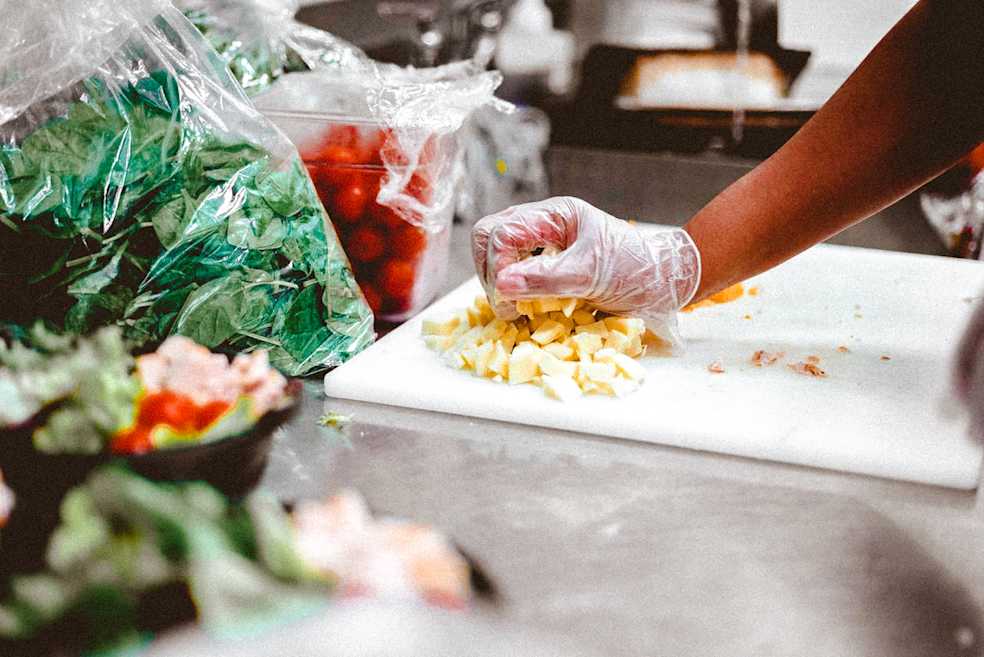Working as a Food Assembler: Everything You Need To Know

What's the first job that comes to mind when you think of kitchen work?
Most people say a chef or line cook, as these positions are the backbone of any kitchen. But ask anyone who's ever worked in hospitality, and they'll tell you that a great cook alone simply isn't enough. For kitchens—and restaurants—to succeed, several other supporting back-of-house roles are just as important.
Positions like food runners, bussers, dishwashers, and food assemblers are critical to a kitchen's smooth and efficient operation. And the U.S. Bureau of Labor Statistics projects that, in the next decade, over 140,000 new openings for food prep and assembly workers are expected to become available each year.
Today, we look at what it means to work as a food assembler: the skills and training required, the careers it can lead to, and how to find the best food assembler jobs in your area.
Working as a food assembler
The role of a food assembler can involve different responsibilities based on the specific requirements of the kitchen. Food assemblers work alongside chefs, cooks, and servers to ensure the smooth running of operations. While they don't do the actual cooking, they play a crucial role in big kitchens with high-volume demands.
Important skills
Food assemblers regularly interact with everyone in the kitchen, so a good work ethic and communication skills are essential. The best food assemblers actively listen, ask for clarification, adapt to a team mentality, and never have to be told to do something twice.
Because food assemblers often have a list of different duties, they also need to manage their time, prioritize tasks, and remain calm in fast-paced, high-pressure environments.
Required training
Food assembly jobs don't usually require formal qualifications, and many positions have their own brand of on-the-job training. However, individuals with food preparation training, cooking certifications, or a bachelor's degree in culinary arts will have a big leg up on the competition when looking for jobs as a food assembler.
The most important thing people look for in a food assembler is experience. While a chef or kitchen manager will provide some direction about a food assembler's tasks and duties, bigger operations with a high volume will expect food assemblers to hit the ground running and be able to carry out basic daily tasks without much assistance.
Day-to-day tasks
Here are some typical daily tasks of a food assembler:
Tossing salads
Making sauces
Portioning food items
Keeping all workstations clean
Cleaning and cutting vegetables
Cutting and slicing meat and poultry
Arranging food on plates for service
Helping with inventory and stocking
Providing cooks and chefs with assistance
Assembling burgers, sandwiches, and cold plates
Ensuring food supplies are replenished for service
Using various kitchen equipment like fryers and slicers
Typical pay
The pay for food assembly positions varies slightly depending on experience. Typically, a food assembler earns around $14 an hour, with a median yearly salary of $28,871.
Career projections
Although food assembler positions are often an entry-level role in a restaurant or kitchen, the job can be a first step toward many different careers in hospitality. With time, food assemblers will gain the necessary experience to work as line cooks, opening doors for further training to become professional chefs.
For those who prefer the management side of hospitality, working as a food assembler also provides unique insight into the internal operations of a restaurant, leading to a potential career in hospitality management.
How to find the best food assembler jobs
Finding the best food assembler jobs can take time and effort. It can be challenging to know where to look or when something becomes available, and top positions are typically in high demand, making them difficult to land.
That's why using a platform like Qwick can help. Developed by people with a keen understanding of the industry, Qwick is a tech platform that matches experienced hospitality professionals with businesses that need to fill shifts.
The days of scouring the internet for hospitality jobs, filling out applications, and waiting for interviews are over. With Qwick, you can go straight to filling food assembler jobs that match your skills and schedule.
Scale the chef ladder with Qwick
To advance in your career as a hospitality professional, a position as a food assembler is a great place to start. Once you have at least a year of experience, Qwick can help you work more freely and flexibly filling food assembler shift with competitive pay in reputable workplaces across the country. Working in a diverse mix of kitchens, with different teams, as a result of freelancing is a great way to network and unlock new skills and opportunities.
Sign up with Qwick and start your hospitality freelancing career today!